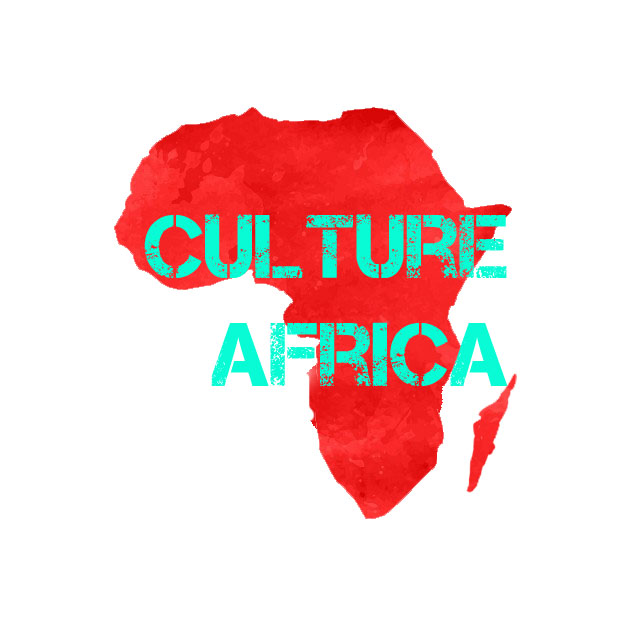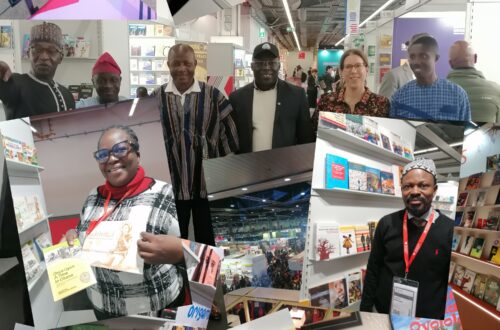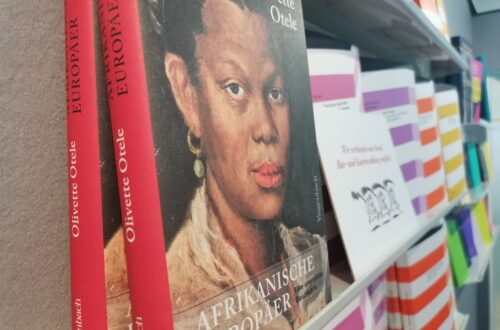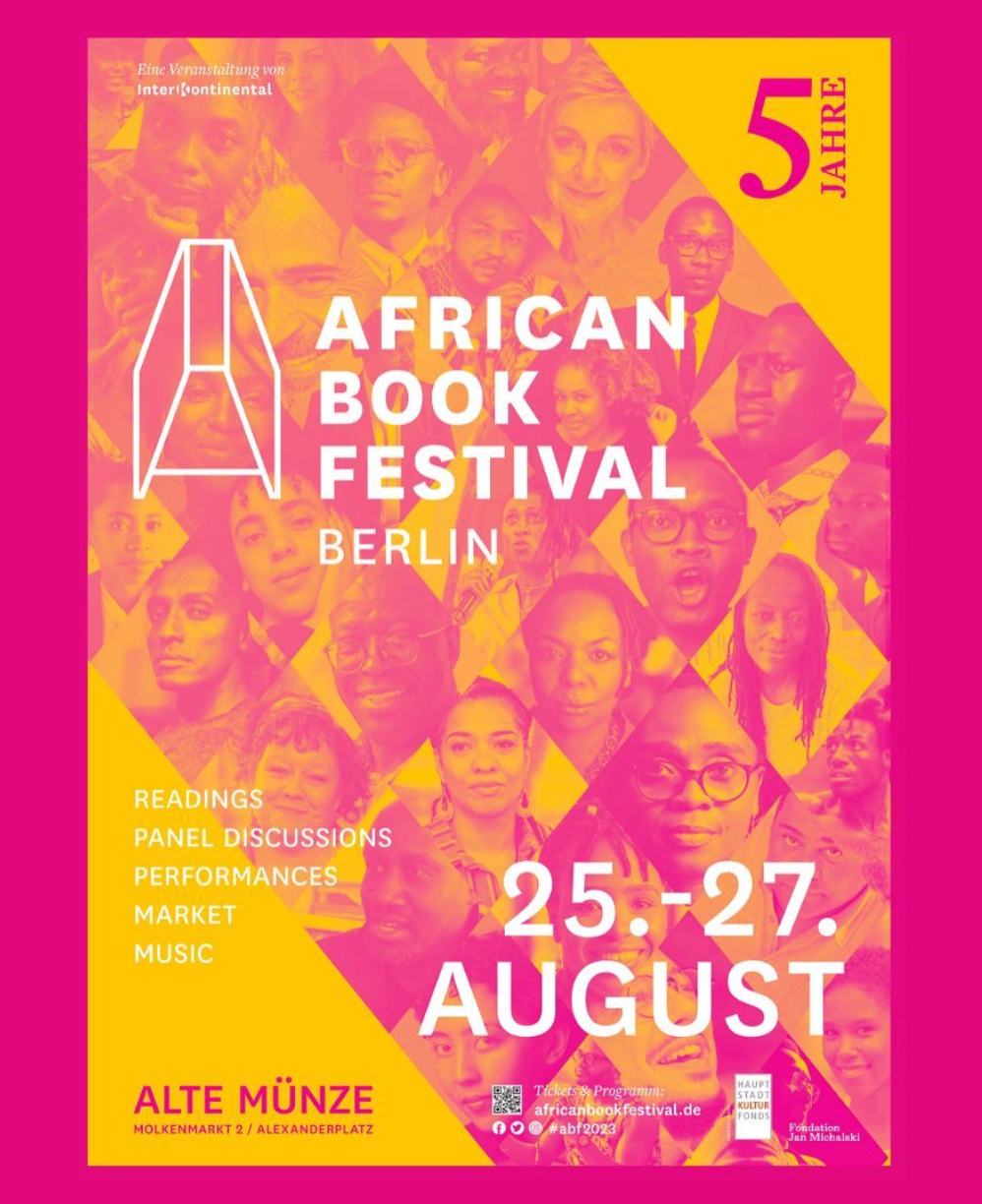
African Book Festival Berlin 2023: Boost for African Literature in Germany. Interview mit/with Co-Organizer Venice Trommer
African Book Festival Berlin 2023: Boost for African Literature in Germany. Interview mit/with Co-Organizer Venice Trommer:
In diesem Jahr findet das African Book Festival in Berlin zum fünften Mal statt. Es hat sich in den letzten Jahre zu einem der wichtigsten Festivals für afrikanische Literatur in Deutschland und Europa entwickelt. Es ist ein Publikumsfestival im klassischen Sinne. Und es hat die Einschränkungen der Pandemie-Jahre erfolgreich überstanden. Die Lust auf afrikanische Literatur ist größer denn je. Ein Merkmal des ABF ist die Gestaltung des Programms durch afrikanische Kurator:innen. Der InterKontinental e.V. als Veranstalter wählt dazu jedes Jahr eine literarische Persönlichkeit aus. Dieses Kurator:innen-Prinzip, das die letzten Ausgaben geprägt haben, wurde dieses Jahr mit einem Paukenschlag ausgehebelt. Kurz nach der Bekanntmachung des diesjährigen Kurators, Mohamedou Ould Slahi brach in der deutschen Medienöffentlichkeit kurzzeitig ein Sturm der Entrüstung los. Die Vergangenheit des bekannten Autors , der jahrelang unschuldig in Guanánamo inhaftiert war, wurde wieder öffentlich diskutiert und er als Kurator diskreditiert. Die drohende Überlagerung des Festivals von diesen Diskussionen hat beide Seiten dann zur Entscheidung geführt, den Kuratorenposten dieses Jahr unbesetzt zu lassen. cultureafrica.net hat sich mit einer der Organisatorinnen des Festivals, Venice Trommer unterhalten.
Es wäre wünschenswert, dass auf allen Literaturfestivals ganz selbstverständlich auch afrikanische Literatur vertreten ist. Das ist leider nicht der Fall. Venice Trommer
Von Hans Hofele
FOR THE ENGLISH VERSION PLEASE SCROLL DOWN
Hans Hofele: Dieses Jahr findet das Festival zum fünften Mal statt. Eine Jubiläumsausgabe also. Wie hat sich das Festival aus Sicht der Organisatoren entwickelt? Es ist ja mittlerweile ein sehr großes Festival, war es das am Anfang auch?
Venice Trommer: Es war tatsächlich auch schon beim ersten Mal relativ groß. Da hatten wir auch schon circa 30 Autor:innen dabei. Was sich geändert hat ist zum einen die Spielstätte: die ersten zwei Ausgaben waren wir im bekannten Filmtheater Babylon. Das war schon auch sehr gut dort. Als großes Kino war der Ort aber auch wenig flexibel. Das war langfristig nicht ganz optimal. Ein Kino mit 500 Plätzen wirkt schnell auch leer, wenn dort 150 Menschen drin sitzen. Und es gab nur diesen Saal.
Nachdem 2020 das Festival wegen der Corona Pandemie ausfiel, sind wir 2021 in eine Open Air Location gewechselt, das Freiluftkino Rehberge im Wedding. Wichtig war uns, das Festival in Präsenz stattfinden lassen zu können. Es war allerdings von der Erreichbarkeit nicht ganz optimal.
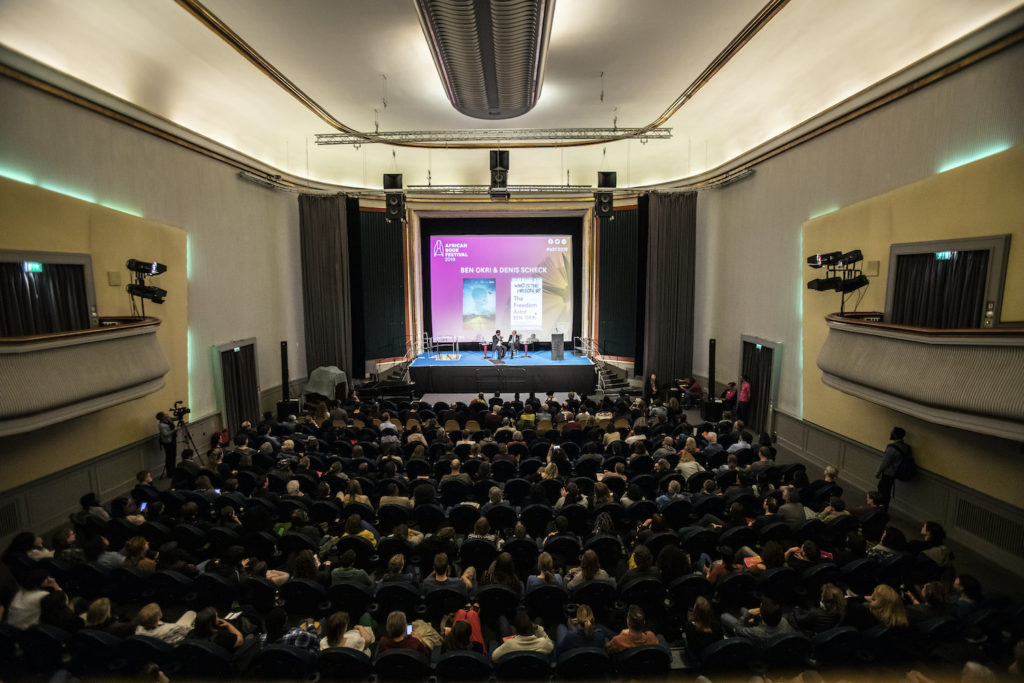
H: hat euch die Coronazeit eigentlich wieder zurückgeworfen, nachdem alles so erfolgreich gestartet war?
V: Es war, wie für alle anderen auch, eine schwierige Zeit, gerade für Veranstalter:innen. Dennoch sind wir im Laufe der Zeit gewachsen. Auch was die mediale Aufmerksamkeit betrifft. Letztes Jahr hatten wir dann noch die Herausforderung, dass uns die Spielstätte Napoleon-Komplex kurzfristig abgesagt wurde. Wir konnten aber innerhalb von 24 Stunden einen Ersatz finden, die Alte Münze, wo es dieses Jahr auch wieder stattfindet.
H: Gibt es also auch eine gewisse Solidarität innerhalb der Berliner Kulturszene? Es ist ja nicht selbstverständlich, dass so schnell Ersatz gefunden wird.
V: Es gibt sie schon, die Solidarität. Der Verein hinter der Alten Münze sieht sich schon auch als Akteur, der solche Projekte unterstützt. Natürlich hat auch die neue Spielstätte davon profitiert uns aufzunehmen. Wir bezahlen ja auch für die Location. Eine win win Situation. Unsere Befürchtung, dass die Leute verwirrt sein könnten, hat sich aber nicht bewahrheitet. Alle haben es gefunden, es war voll.
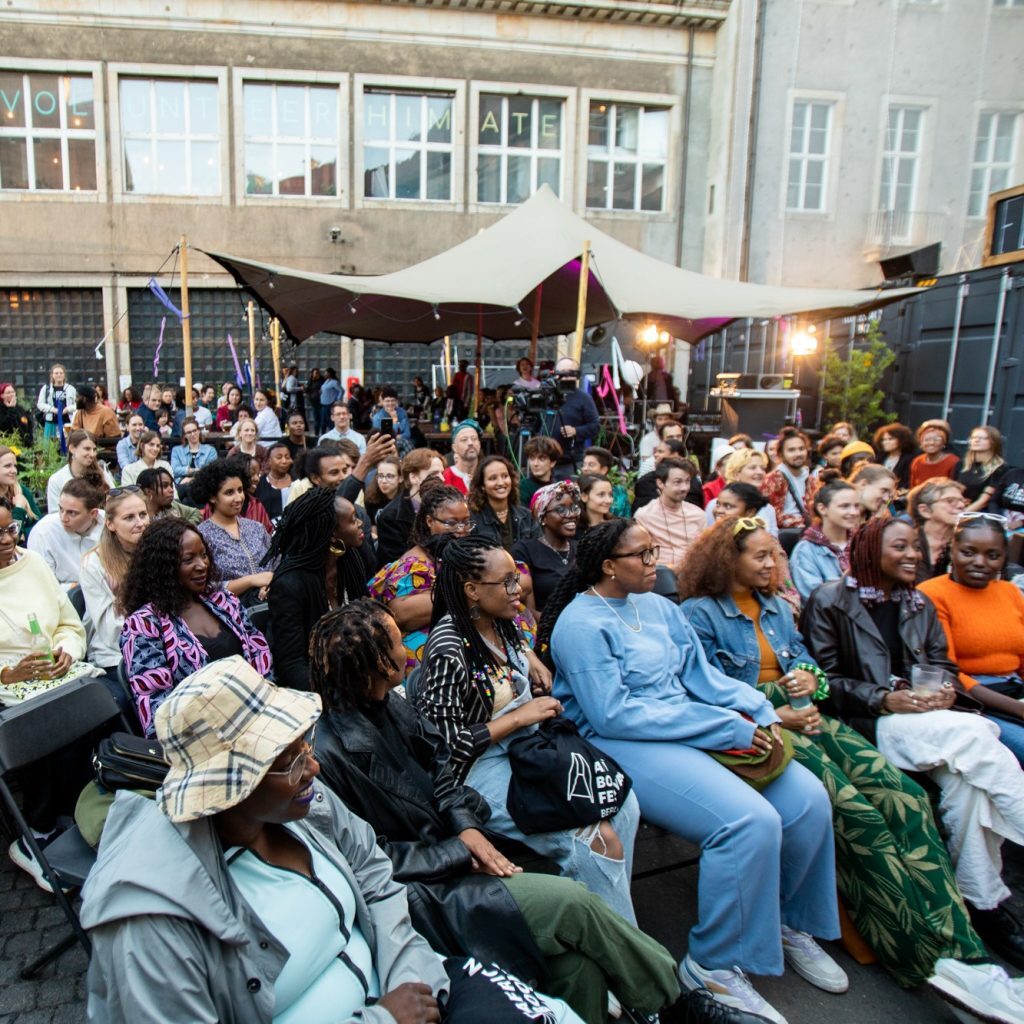
H: Es gibt dieses Jahr also keinen Kurator. Was hat die Festivalleitung entschieden? Wo liegt der diesjährige Schwerpunkt?
V: Neben der Festivalleitung gibt es Anregungen aus unserem Verein aber auch von außen, aus dem Publikum heraus. Wir wollten dieses Jahr mehr Autor:innen aus dem nördlichen Afrika nach Berlin holen. Und das machen wir: Mit Laila Lalami, Haji Jabir, und Leila Aboulela zum Beispiel.
Generell sind den Wünschen auch Grenzen gesetzt. Autor:innen müssen für das ABF bereit sein, nach Berlin zu kommen und für ein im internationalen Vergleich kleines Honorar aufzutreten. Das macht natürlich auch nicht jede oder jeder. Es sind ja zum Teil weite Reisen für einen kurzen Zeitraum. Aber insgesamt haben wir aufgrund unseres Renommees eine überwiegend positive Resonanz, wenn wir Autor:innen anfragen.
H:Das ABF trägt ja seit fünf Jahren dazu bei, dass die afrikanische Literatur in Deutschland mehr Aufmerksamkeit bekommt. Wie hat sich denn aus deiner Sicht die Wahrnehmung dieser Literatur hier entwickelt?
V: Ohne genaue Zahlen zu kennen, es ist in den letzten Jahren ein Aufschwung spürbar. Es gibt mehr Übersetzungen, eine größere Aufmerksamkeit der Medien und der Leserschaft. Da spielt nicht nur unsere Arbeit eine Rolle, aber sicherlich auch. Die vielen Literaturpreise für afrikanische Autor:innen im Jahr 2021 mit dem Höhepunkt des Nobelpreises haben auch für einen Aufschwung gesorgt. Ein eher unerfreulicher Anlass war sicher der Tod von George Floyd und die folgende Black Lives Matter Bewegung . Viele weiße Menschen im Westen haben angefangen sich mit Rassismus auseinander zu setzen und auch angefangen, ihre Lesegewohnheiten zu hinterfragen, neugieriger werden. Ich denke optimistisch, hoffe natürlich, dass das nicht nur eine Welle ist, die vorüberzieht.
H: Aus afrikanischen Ländern gibt es auch mehr Bücher, die bei uns auf den Markt kommen. Also die schiere Zahl von Veröffentlichungen hat zugenommen. Hat das auch einen Einfluss?
V: Was die Bücher englischsprachiger Autor:innen betrifft, auf jeden Fall! Noch sind aber die deutschen Übersetzungen überschaubar. Man kann alle Bücher von afrikanischen Autor:innen, die in einem Jahr auf deutsch erscheinen lesen. Das schafft man noch. Auch große Publikumsverlage übersetzen afrikanische Autor:innen selbstverständlicher. Oft wird erst nach Veröffentlichung in den USA oder GB auch hier publiziert. Aber direkte Ankäufe von Texten vom Kontinent nehmen zu. Bekannte Autor:innen wie Chimamanda Ngochie Adichie haben durch ihren großen kommerziellen Erfolg sicher auch dazu beigetragen, dass afrikanische Literatur besser wahrgenommen und verlegt wird. Nach Chimamanda wurden eine ganze Reihe von nigerianischen Autor:innen ins Deutsche übersetzt.
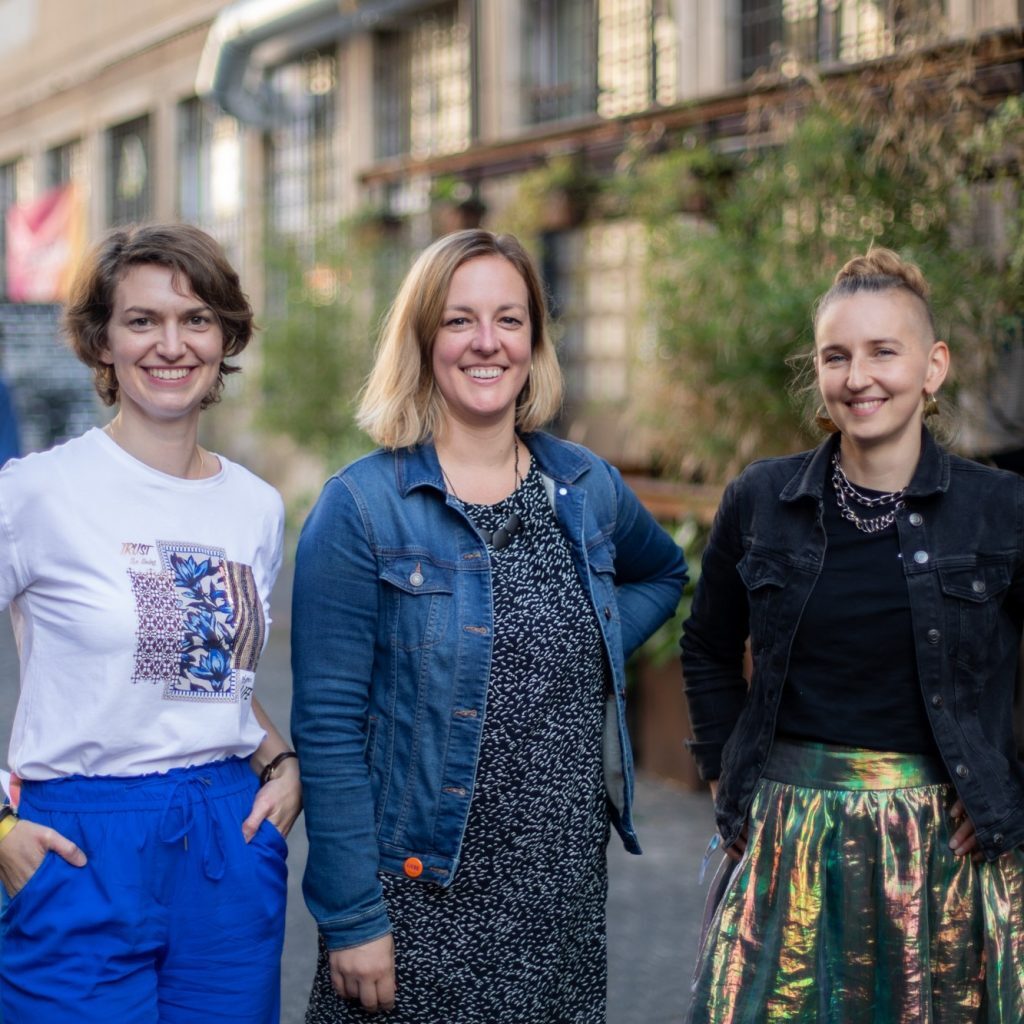
H: Übersetzungen spielen eine große Rolle in Deutschland. Oft werden auch Fördertöpfe bemüht um eine Übersetzung möglich zu machen. Die litprom hat dort einen wichtigen Beitrag geleistet, hat viele Übersetzungen mitfinanziert. Hat?
V: Hat. Dieses Jahr gibt es sie nicht, beziehungsweise wurden die Gelder vom Auswärtigen Amt noch nicht freigegeben. Das sehe ich kritisch. Auch haben es kleine Verlage wie Akono oder Interkontinental schwer, eine Übersetzung zu finanzieren. Übersetzungskosten machen eine Buchveröffentlichung immer zu einem finanziellen Risiko und oft nicht lukrativ.
H: Wieso braucht es eigentlich immer noch ein eigenes Festival für afrikanische Literatur?
V: Es wäre wünschenswert, dass auf allen Literaturfestivals ganz selbstverständlich auch afrikanische Literatur vertreten ist. Das ist leider nicht der Fall. Auf den Literaturfestivals findet afrikanische Literatur nur vereinzelt statt. Das reicht aber nicht. Oft werden finanzielle Gründe vorgebracht. Dabei sind Flüge aus Kapstadt auch nicht teurer als aus zum Beispiel Los Angeles. Es müsste auch noch viel mehr Arbeit in publicity investiert werden um diese Autor:innen dem deutschen Publikum bekannt zu machen.
Das Publikum beim ABF ist übrigens deutlich jünger als bei vielen anderen Literaturveranstaltungen. Und deutlich diverser. Da merkt man deutlich, wen man dort anspricht. Es wird ja gern gesagt, junge Menschen lesen nicht mehr. Aber es kommt darauf an, für welche Geschichten sie sich interessieren und welche Geschichten ihnen angeboten werden. Da habe ich schon das Gefühl, das dieses Publikum immer begeistert ist und recht jung. Manche warten regelrecht auf bestimmte Lieblingsautor:innen, aber sie entdecken auch neue. Manche sind ganz heiß drauf und können es kaum erwarten, bis das Programm online geht. Das African Book Festival ist mittlerweile zu einem Treffpunkt für eine ganz besondere community geworden.
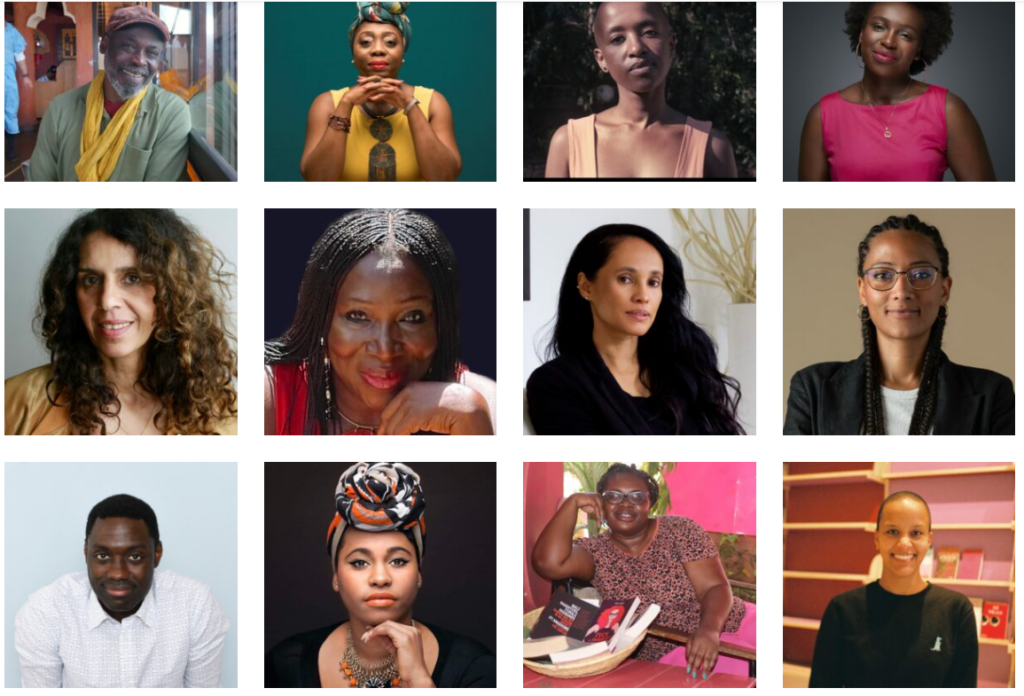
H: Auf anderen Festivals in Deutschland sind afrikanische Autor:innen ganz oft die „Exoten“. Das ist ja beim ABF ganz anders, oder?
V: Ein Beweggrund für die Gründung des African Book Festivals war, dass sich die Autor:innen, auf anderen Festivals oft als Sprachrohr für ein Land, im schlimmeren Fall für einen ganzen Kontinent äußern sollen. Oft auch zur Politik ihres Landes, ob sie nun darüber schreiben oder nicht.. Dabei bleiben literarische, stilistische, künstlerische Kriterien auf der Strecke. Übrigens lässt sich das auch bei Buchrezensionen beobachten: Stil, Metaphorik, Struktur oder Erzählperspektiven treten in den Hintergrund. Das Schreiben als Kunst kommt häufig zu kurz. Die Biografie des Autors, der Autorin steht oft im Vordergrund. Natürlich ist es auch richtig, dass ein Roman eine gute Quelle sein kann, um etwas über eine bestimmte Region zu lernen. Das wollte das ABF schaffen: das Hauptaugenmerk auf das Schreiben, Schaffen und Wirken der Autor:innen legen. Der künstlerische Aspekt soll im Vordergrund stehen.
H: Was sollte man dieses Jahr nicht verpassen, wenn man nach Berlin zum ABF kommt?
V: Die Eröffnungsveranstaltung „Love at First Read“! Ein Book Speed Dating mit den Festivalautor:innen. ´.Dort bekommt man kurze und kurzweilige Einblicke in das, was einen die kommenden Tage erwartet. Danach können sich die Besucher:innen ihren ganz persönlichen Festivalkalender zusammen bauen. Moderiert wird das Dating von Alexandra Antwi-Boasiako und Jörg Petzold. Dazu gibt es Musik von The String Archestra und Adelle Nqeto.
H: Vielen Dank für das Gespräch.
Link zum diesjährigen Programm:
https://africanbookfestival.de/de/programm23/
ENGLISH
This year, the African Book Festival in Berlin will take place for the fifth time. In recent years, it has developed into one of the most important festivals for African literature in Germany and Europe. It is a public festival in the classical sense. And it has successfully survived the restrictions of the pandemic years. The appetite for African literature is greater than ever. One feature of the ABF is that the program is designed by African curators. The organizer, InterKontinental e.V., selects a literary personality each year. This curatorial principle, which has characterized the last editions, was cancelled this year with a bang. Shortly after the announcement of this year’s curator, Mohamedou Ould Slahi, a storm of indignation briefly broke out in the German media. The past of the well-known author , who was innocently imprisoned in Guanánamo for years, was again publicly discussed and he was discredited as a curator. The threat of the festival being overlaid by these discussions then led both sides to the decision to leave the curator position unfilled this year. cultureafrica.net talked to one of the organizers of the festival, Venice Trommer.
By Hans Hofele
Hans Hofele: This year the festival is taking place for the fifth time. An anniversary edition, then. How has the festival developed from the organisers’ point of view? It has become a very big festival, was it at the beginning as well?
Venice Trommer: It was already relatively big the first time. We already had about 30 authors there. What has changed is, on the one hand, the venue: the first two editions we were in the well-known Babylon film theatre. That was also very good there. But as a large cinema, the location was not very flexible. That was not quite optimal in the long run. A cinema with 500 seats quickly looks empty when 150 people are sitting in it. And there was only this hall.
After the festival was cancelled in 2020 because of the Corona Pandemic, we moved to an open-air location in 2021, the open-air cinema Rehberge in Wedding. It was important for us to be able to hold the festival in a place where people could be present. However, the accessibility was not quite optimal.
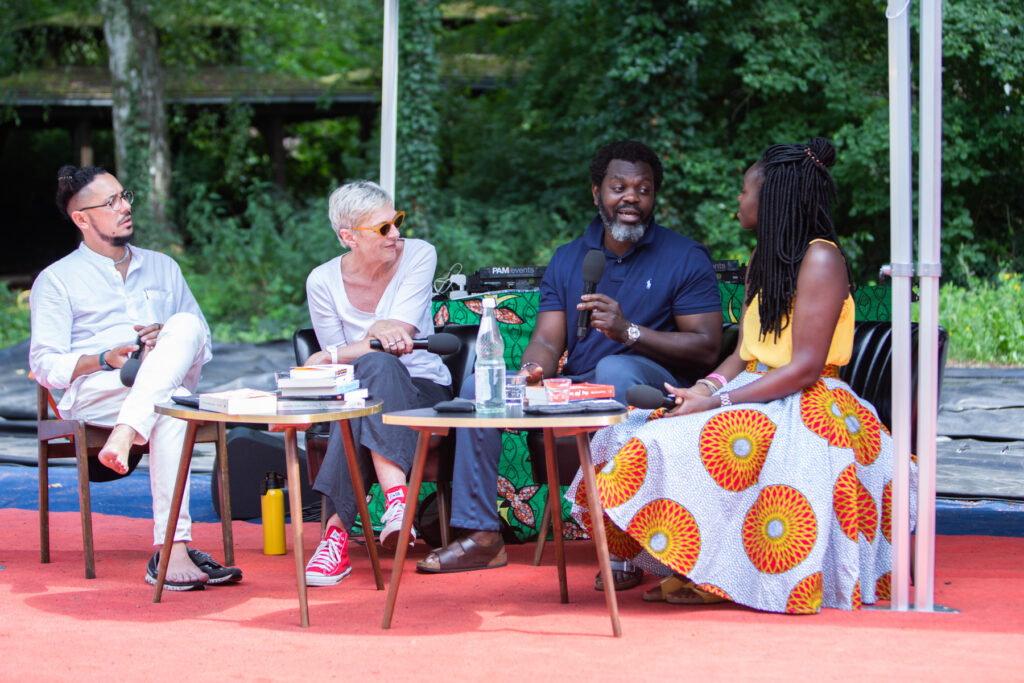
H: Did the Corona period actually set you back again after everything had started so successfully?
V: Like for everyone else, it was a difficult time, especially for organisers. Nevertheless, we have grown in the course of time. Also in terms of media attention. Last year we had the challenge that the Napoleon Complex venue was cancelled at short notice. But we were able to find a replacement within 24 hours, the Alte Münze, where it will take place again this year.
H: So is there also a certain solidarity within the Berlin cultural scene? It’s not a matter of course that a replacement is found so quickly.
V: There is solidarity. The association behind the Alte Münze sees itself as a player that supports such projects. Of course, the new venue has also benefited from taking us in. We also pay for the location. A win win situation. But our fear that people might be confused didn’t come true. Everyone found it, it was full.
H: So there is no curator this year. What did the festival management decide? What is the focus this year?
V: In addition to the festival management, there are suggestions from our association, but also from outside, from the audience. We wanted to bring more authors from northern Africa to Berlin this year. And that is what we are doing: With Laila Lalami, Haji Jabir and Leila Aboulela, for example.
In general, there are limits to what we can do. Authors must be prepared to come to Berlin for the ABF and to perform for a small fee compared to other countries. Of course, not everyone does that. Some of them travel long distances for a short period of time. But all in all, because of our reputation, we get a predominantly positive response when we ask authors.
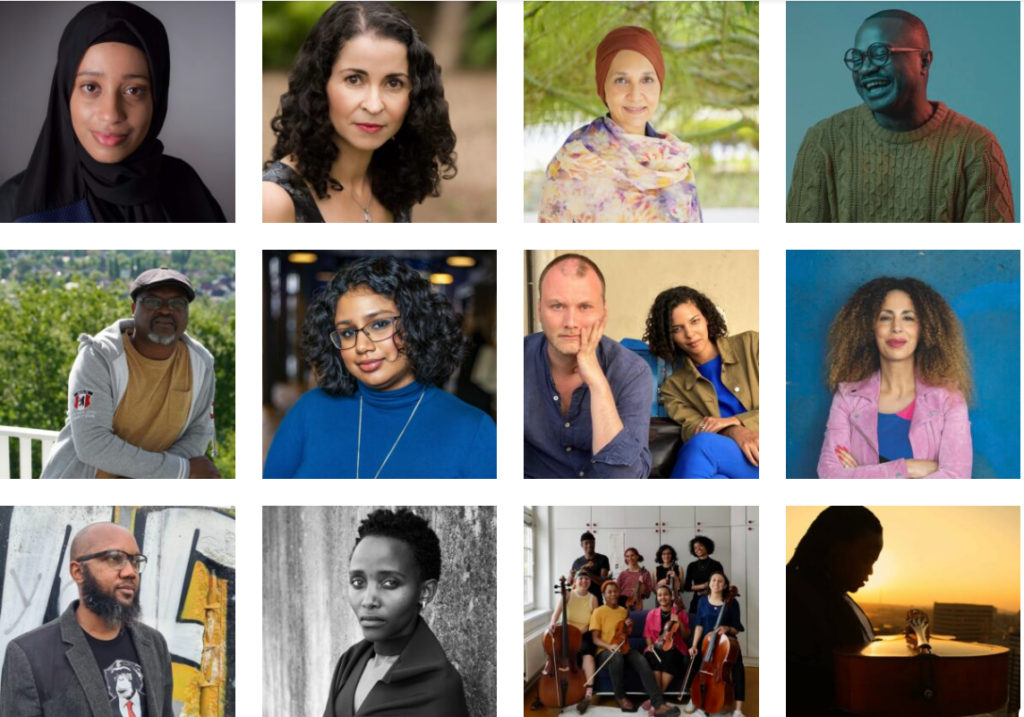
H: For five years now, the ABF has been helping to raise the profile of African literature in Germany. How do you think the perception of this literature has developed here?
V: Without knowing exact figures, there has been a noticeable upswing in recent years. There are more translations, more attention from the media and the readership. Our work is not the only factor here, but it certainly plays a role. The many literary prizes for African authors in 2021, culminating in the Nobel Prize, have also provided a boost. A rather unpleasant occasion was certainly the death of George Floyd and the subsequent Black Lives Matter movement .
Many white people in the West have started to look at racism and also started to question their reading habits, become more curious. I think optimistically, hoping of course that this is not just a wave that passes.
H: There are also more books from African countries coming onto the market here. So the sheer number of publications has increased. Does that also have an influence?
V: As far as books by English-speaking authors are concerned, definitely! But the German translations are still manageable. You can read all the books by African authors that will be published in German in a year. You can still do that. Large publishing houses are also translating African authors as a matter of course. Often they only publish here after they have been published in the USA or UK. But direct purchases of texts from the continent are increasing. Well-known authors such as Chimamanda Ngochie Adichie have certainly contributed to a better perception and publication of African literature through their great commercial success. After Chimamanda, a whole series of Nigerian authors were translated into German.
H: Translations play a big role in Germany. Funding is often sought to make a translation possible. litprom has made an important contribution there, has co-financed many translations. Has?
V: Has. This year there are no such funds, or rather the funds have not yet been released by the Foreign Office. I see that critically. Also, small publishers like Akono or Intercontinental have a hard time financing a translation. Translation costs always make a book publication a financial risk and often not lucrative.
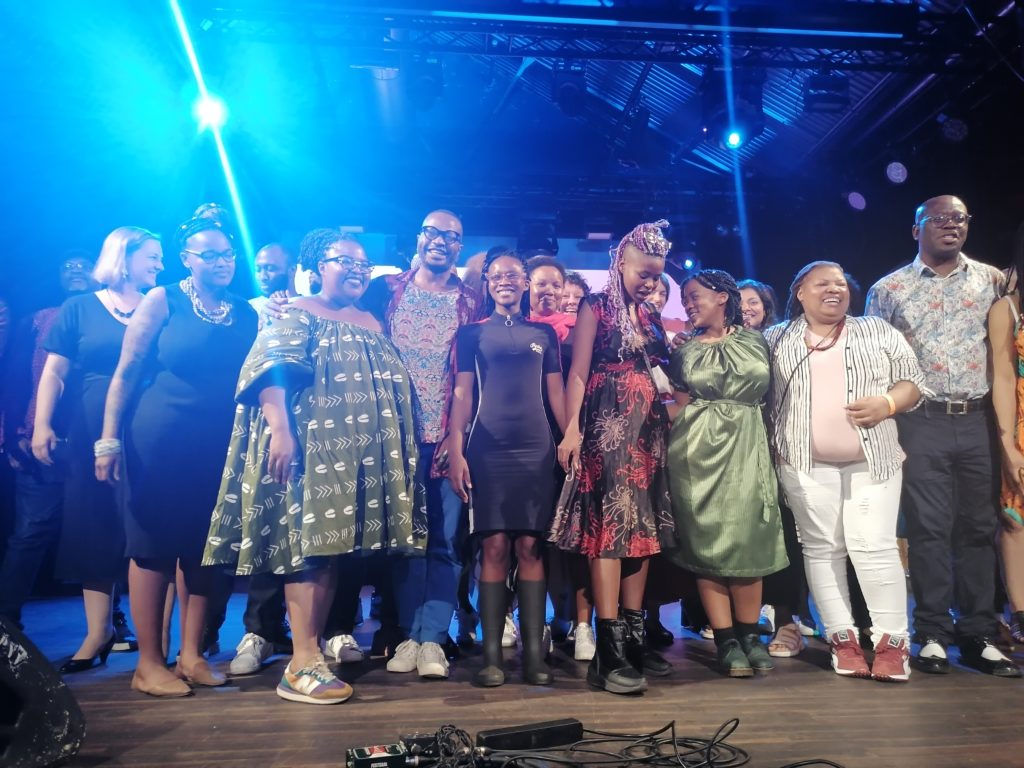
H: Why is there still a need for a separate festival for African literature?
V: It would be desirable for African literature to be represented at all literature festivals as a matter of course. Unfortunately, that is not the case. At the literature festivals, African literature is only presented sporadically. But that is not enough. Financial reasons are often cited. Flights from Cape Town are no more expensive than from Los Angeles, for example. Much more work would have to be invested in publicity to make these authors known to the German public.
By the way, the audience at the ABF is much younger than at many other literary events. And much more diverse. You can clearly tell who you are addressing there. It is often said that young people no longer read. But it depends on which stories they are interested in and which stories are offered to them. I have the feeling that this audience is always enthusiastic and quite young.
Some are waiting for certain favourite authors, but they are also discovering new ones. Some are really excited and can hardly wait until the programme goes online. The African Book Festival has become a meeting place for a very special community.
H: At other festivals in Germany, African authors are often the “exotics”. That’s quite different at the ABF, isn’t it?
V: One of the reasons for founding the African Book Festival was that the authors, who at other festivals are often the mouthpiece for a country, or in the worse case, for an entire continent, should express themselves. Often also on the politics of their country, whether they write about it or not. Literary, stylistic, artistic criteria fall by the wayside. By the way, this can also be observed in book reviews: Style, metaphor, structure or narrative perspectives take a back seat. Writing as art is often neglected. The biography of the author is often in the foreground. Of course, it is also true that a novel can be a good source for learning about a certain region. That’s what the ABF wanted to do: focus on the authors’ writing, creation and work. The artistic aspect should be in the foreground.
H: What should you not miss this year when you come to Berlin for the ABF?
V: The opening event “Love at First Read”! A Book Speed Dating with the festival authors. There you get short and entertaining insights into what to expect over the next few days. Afterwards, visitors can put together their own personal festival calendar. The dating will be moderated by Alexandra Antwi-Boasiako and Jörg Petzold. There will be music by The String Archestra and Adelle Nqeto.
H: Thank you very much for the interview.
Link to the programme
https://africanbookfestival.de/de/programm23/
copyright: cultureafrica.net 2023


